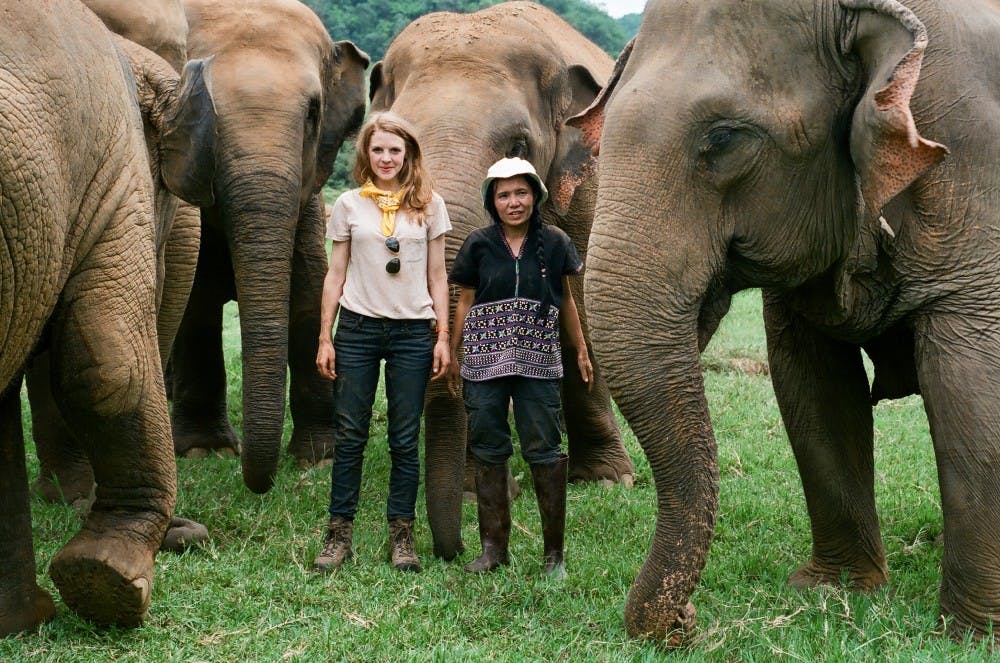The 26th annual DC Environmental Film Festival (DCEFF) ended this Sunday, March 25, after ten days of events and film screenings. Chris Palmer, a full-time professor in Film and Media Arts at AU, hosted five big DCEFF events March 20-23 at the University and also serves on the Advisory Council for DCEFF’s partnership.
Frequently partnering with universities, museums and local theaters across the city for screenings, the festival organizers are proud that many of their events are free, giving environmental issues a larger platform, said Brad Forder, the director of programming.
“The idea of outreach goes beyond sitting in the theater and watching the film,” Forder said. “But the great thing about film is bringing the issue to people directly rather than assuming out of sight, out of mind. We use it as a platform to raise issues and allow individuals for the next step.”
Ashley Bell, director, producer and writer for “Love and Bananas,” said she was invigorated and excited that the world premiere of her film would be in Washington.
“To be in D.C. and be in the nation’s capital around people who will listen and people who will hopefully be able to change something is just amazing,” Bell said.
“Love and Bananas” follows Bell and a team of elephant rescuers, led by world-renowned elephant conversationalist Lek Chailert, during a 48-hour mission across Thailand to rescue a captive Asian elephant.
Forder emphasized that the difference of DCEFF and other environmental film festivals is the strength of their partnerships within and beyond the district as well as the resources they provide audiences with.
“We have impact campaigns, we have polls for social that people can grab and post. The fact that we do that as our machine and then be part of a bigger venue is a huge opportunity,” Forder said.
This intimate relationship that audiences can form with directors, producers, activists and, in turn, their legislature is the driving force of DCEFF’s success, according to Forder.
“Most of our screenings have a discussion or a Q&A, so we bring in authorities, directors, experts to have a discussion beyond the film for a broader discussion,” he said.
Encouraging directors, such as Bell, to show and premiere their films in the capital is more than just symbolic. Forder said that it’s meant to facilitate conversations within a diverse community.
Primarily an actress, Bell explained that the moment she saw elephants being freed into a sanctuary in Cambodia, she knew she had to tell that story.
“I saw the plight of the elephants and saw Lek Chailert and her admirable spirit fighting against all odds to save this species, it just came through me. We risked it big to capture the elephant rescue in Thailand and I’d say we succeeded,” Bell said.
Like “Love and Bananas,” a lot of the films shown at DCEFF are smaller production films making things difficult under such extreme circumstances.
“Everyone wore 800 hats, but it was just me and three crew guys,” Bell said. “I heard it described best as it’s thoroughly a hive mind and if you can implement that in a safe collective space to tell the story, you have a shot to hopefully making the film.”
More information on the 2018 award winners for the DCEFF and the film festival itself can be found here.





